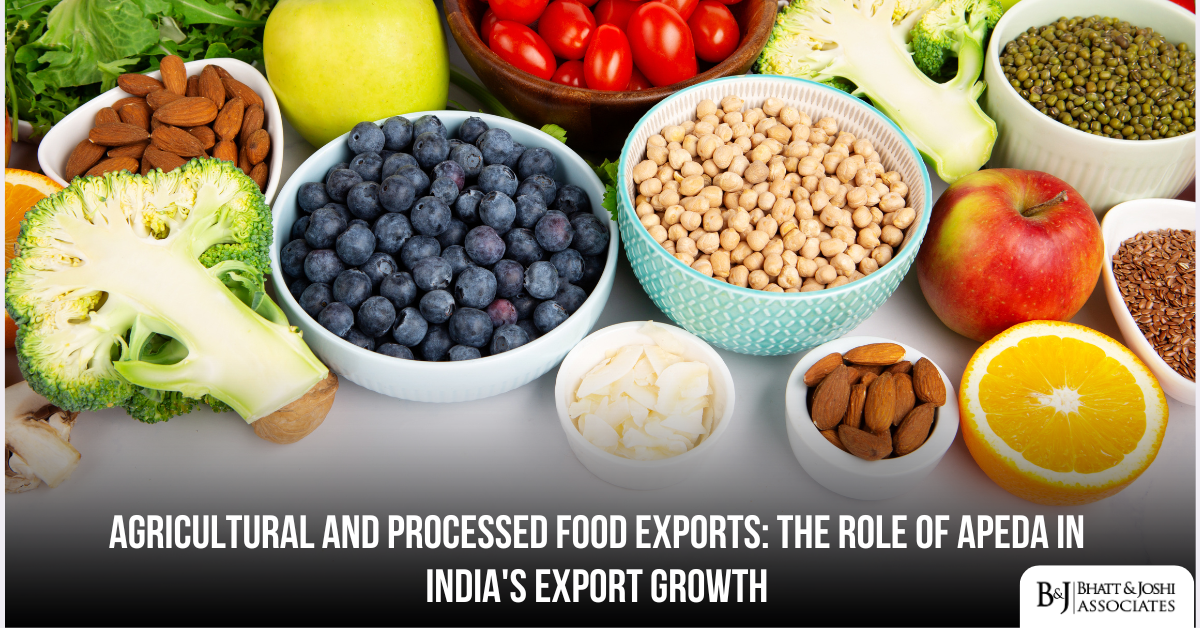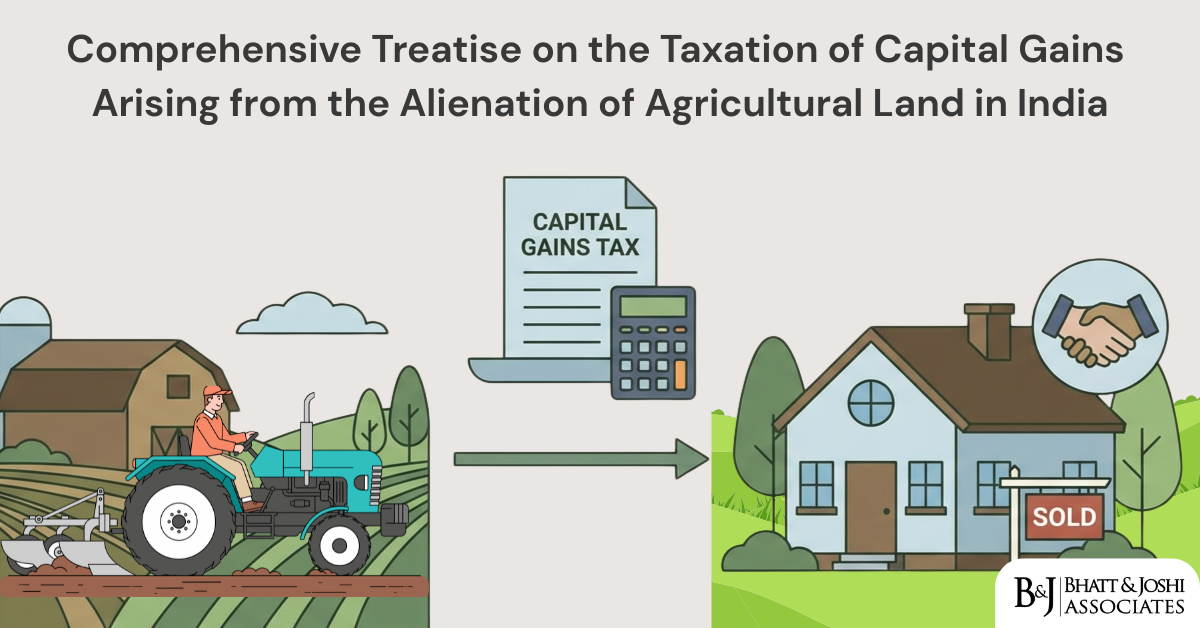Agricultural and Processed Food Exports: The Role of APEDA in India’s Export Growth
Introduction
The Agricultural and Processed Food Products Export Development Authority (APEDA) stands as a cornerstone institution in India’s agricultural export landscape. Established under the Agricultural and Processed Food Products Export Development Authority Act of 1985, APEDA has been instrumental in facilitating, promoting, and developing the export of various agricultural and processed food products from India. The authority’s comprehensive approach to export promotion has transformed India’s agricultural export sector, creating new opportunities for farmers, processors, and exporters while establishing India’s presence in global markets. Through its multifaceted initiatives and programs, APEDA has consistently worked to enhance the competitiveness of Indian agricultural products in international markets while ensuring adherence to global quality standards and food safety requirements.
Background and Historical Context
The journey of agricultural exports in India has been marked by significant evolution and transformation. In the years preceding APEDA’s establishment, India’s agricultural export sector faced numerous challenges that hindered its growth and development. The sector was characterized by fragmented efforts, limited market access, and inadequate quality control measures. Exporters struggled with multiple issues, including poor infrastructure, limited knowledge of international market requirements, and insufficient support for meeting global quality standards. The absence of a centralized authority resulted in missed opportunities and underutilization of India’s vast agricultural potential.
The 1980s marked a crucial period in India’s economic history, with the government recognizing the need for specialized institutions to promote various sectors of the economy. The agricultural sector, being a significant contributor to India’s economy and employment, required focused attention to realize its export potential. The challenges faced by agricultural exporters, combined with the growing opportunities in global markets, highlighted the need for a dedicated organization to oversee and promote agricultural exports. This realization led to extensive discussions and consultations among stakeholders, ultimately resulting in the conceptualization of APEDA.
Establishment of APEDA
The establishment of APEDA through the Agricultural and Processed Food Products Export Development Authority Act of 1985 marked a watershed moment in India’s agricultural export history. The Act provided a comprehensive legal framework that clearly defined APEDA’s mandate, powers, and responsibilities. The legislation was crafted with the primary objective of creating a specialized body that would coordinate various activities related to agricultural exports and implement a focused approach toward export promotion.
The Act empowered APEDA with wide-ranging functions and responsibilities. These included the development of industries relating to scheduled products, improving packaging standards, setting quality parameters, carrying out inspection, and providing marketing support to exporters. The authority was also tasked with collecting and maintaining detailed statistics related to the export of scheduled products, which would serve as a valuable resource for policy-making and strategic planning.
The establishment process involved careful consideration of various aspects of agricultural exports and the creation of appropriate organizational structures to address them effectively. The Act provided APEDA with the necessary autonomy while ensuring accountability through its reporting structure to the Ministry of Commerce and Industry. This balanced approach has proven crucial in enabling APEDA to fulfill its mandate effectively while maintaining alignment with broader national economic objectives.
Organizational Structure and Functions
The organizational framework of APEDA reflects its comprehensive mandate and the diverse responsibilities it shoulders in promoting agricultural exports. Operating under the Ministry of Commerce and Industry, Government of India, APEDA maintains a structured hierarchy designed to effectively implement its various programs and initiatives. At the helm is the Chairman, supported by a team of senior officials who oversee different aspects of the authority’s operations. The organizational structure incorporates various specialized divisions, each focusing on specific aspects of export promotion while working in coordination with others to ensure comprehensive support to stakeholders.
The authority maintains a strong presence across the country through its regional offices, which serve as crucial touchpoints for exporters and other stakeholders. These offices play a vital role in implementing APEDA’s programs at the ground level, providing localized support, and ensuring effective coordination with state governments and local agricultural bodies. The regional offices also facilitate better understanding of local challenges and opportunities, enabling APEDA to tailor its interventions accordingly.
Key Product Categories under APEDA
APEDA’s mandate encompasses a diverse range of agricultural and processed food products, reflecting the vast potential of India’s agricultural sector. In the fresh fruits and vegetables category, the authority has been instrumental in developing standardized practices for cultivation, harvesting, and post-harvest management. This has enabled Indian exporters to meet the stringent quality requirements of international markets and establish a strong presence in global trade.
The processed foods and beverages sector has seen remarkable growth under APEDA’s guidance. The authority has worked extensively with processors and exporters to develop products that meet international taste preferences while maintaining traditional Indian flavors. This has included significant work in improving processing technologies, packaging standards, and quality control measures.
APEDA has played a crucial role in developing India’s meat export sector, particularly buffalo meat exports. The authority’s efforts in ensuring compliance with international food safety standards and religious requirements have helped India become a major player in the global meat trade. Similar success has been achieved in the dairy products sector, where APEDA’s interventions have helped Indian products gain acceptance in international markets.
Export Promotion and Development Initiatives
APEDA’s approach to export promotion encompasses multiple dimensions, focusing on both immediate and long-term development of the sector. Financial assistance schemes implemented by the authority have been crucial in enabling exporters to upgrade their facilities, participate in international trade events, and implement quality management systems. These schemes are regularly reviewed and updated to ensure they remain relevant to the evolving needs of the export sector.
The authority’s capacity building programs have created a skilled workforce capable of meeting international market requirements. These programs cover various aspects of export operations, from production and processing to documentation and market compliance. Regular workshops and training sessions ensure that stakeholders stay updated with the latest developments in global trade.
Market intelligence services provided by APEDA have become an invaluable resource for exporters. Through regular market reports, price analyses, and regulatory updates, the authority helps exporters make informed decisions about market selection and product positioning. This service has been particularly beneficial for small and medium exporters who might otherwise struggle to access such information.
Conclusion: APEDA Impact and Future Prospects
APEDA’s journey since its establishment in 1985 represents a remarkable transformation in India’s agricultural export landscape. Through its comprehensive approach to export promotion, quality enhancement, and market development, the authority has successfully positioned India as a reliable source of quality agricultural and processed food products in the global market. The various initiatives implemented by APEDA have not only facilitated export growth but also contributed to the overall development of India’s agricultural sector.
Looking ahead, APEDA continues to evolve and adapt to changing global market dynamics. Its focus on technological integration, sustainability, and value addition positions it well to address future challenges and opportunities in international trade. The authority’s success in promoting agricultural exports has demonstrated the effectiveness of focused institutional support in developing specific sectors of the economy. As global trade continues to evolve, APEDA’s role in shaping India’s agricultural export future remains crucial, making it an indispensable institution in India’s economic landscape.
 Whatsapp
Whatsapp



